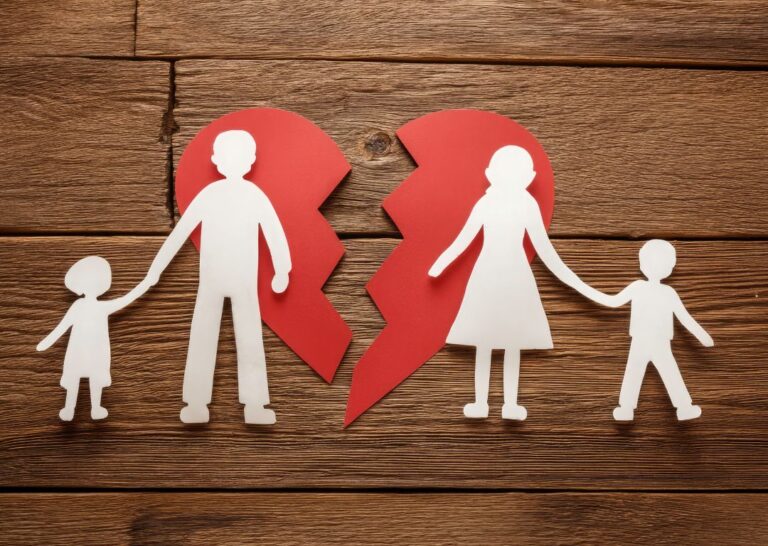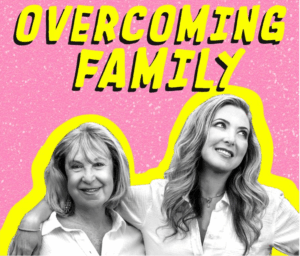Family Estrangement And Ghosting Have Become An International Epidemic
I am experienced with both family estrangement and ghosting and I have to tell you it can do terrible damage to yourself and the whole family. That does not mean it is not necessary for many people who have toxic relatives and need to protect themselves. For those, by all means, keep yourself safe. But, for many others, this behavior may come easy but can have lasting effects.
See, here’s the conflict… Relationships with family are often assumed to be lifelong, steady—rooted in shared genes, traditions, memories. But for many, the reality is messier. Estrangement and ghosting among family members are painful, complex, and more common than many realize. Understanding what’s happening, why it hurts so much, and how to find healing can help you move toward a more peaceful place—even if the relationship never fully returns to what it once was.
Family Estrangement And Ghosting: What Do We Mean by Estrangement and Ghosting?
Family Estrangement is when one or more family members distance themselves—emotionally, physically, or both—from one another. Contact drops off, negative patterns persist, and sometimes a formal “no-contact” boundary is established. It may be mutual, or one side may initiate. It might happen suddenly (after a big fight or boundary violation) or gradually (long-term neglect or unresolved conflict).
Ghosting in a family context often means sudden silence or disconnection: unanswered calls, ignored messages, missed visits without explanation. While commonly discussed in dating or friendships, ghosting also happens with parents, siblings, grandparents—and it may be part of estrangement, or a trigger. The hurt often comes from not knowing why.
Family Estrangement And Ghosting: Why It Happens — Root Causes
It’s impossible to get real clarity about what’s happened and how you reacted without understanding the past and where it comes from. Estrangement and ghosting don’t usually come from one isolated event. Several dynamics often combine over time that create so much anger or resentment that it seems like the best option. Here are a few root causes:
-
Trauma, Abuse, or Emotional Neglect
Repeated patterns of harmful behavior—verbal/emotional abuse, invalidation, neglect—erode trust and safety. If a family member repeatedly crosses boundaries, the person on the receiving end may eventually feel the only options are silence or distance. -
Unmet Needs & Boundaries Violated
Maybe your need for respect, authenticity, or emotional safety has been ignored or dismissed. Constant boundary violations (even small ones) accumulate emotional harm. -
Clashing Values or Identity Differences
Changes in belief, lifestyle, political or moral values—or even coming out as LGBTQ+, choosing a different life path—can create distance. If family reacts with judgment, shame, or control, the gap widens. -
Mental Health & Addiction
When mental health diagnoses, substance misuse, or addiction are involved (on either side), communication and relational safety are often compromised. Misunderstandings, cycles of hurt, and lack of accountability make connection harder. -
Ambiguous Conflicts & No Resolution
Some family fights never get resolved, or the person hurt never feels heard. Ghosting may follow because the offending party won’t or can’t engage. Or because trying to repair feels unsafe (emotionally or physically).
Family Estrangement And Ghosting: The Emotional Toll
Having been through this myself–estranged from my mom for over four years, I can confirm it takes a toll. Even when you need to do it, it can cause extreme emotional distress, feelings of hopelessness, failure, and more. Estrangement and ghosting can bring a swirl of difficult emotions—and they’re often conflicting. Sometimes I felt relief and sadness in the same moment. Here are a few of the conflicting emotions and toll:
-
Grief over what was and what could’ve been
-
Guilt, especially if you initiated the boundary or if others don’t understand
-
Shame and fear of judgment (“family should always stick together”)
-
Relief (paradoxical as it may sound)—relief that you’re no longer in pain or hiding parts of yourself
-
Confusion and uncertainty, especially with ghosting—no closure, no explanation
-
Identity loss: questions like “Who am I without this relationship?”
These emotions are valid. Estrangement is a kind of loss—even if the person is alive—and the grief can be ambiguous and long-lasting.
Family Estrangement And Ghosting: Coping Strategies & Steps Toward Healing
Whether you need to be estranged for a time or forever, there are plenty of things you can do to help feel better–or at least OK. Here are a few ways to survive and even grow through estrangement or ghosting.
Name & Validate Your Experience
Recognize that what you’re feeling matters. You have a right to your feelings—hurt, anger, relief, confusion. You don’t need someone else’s validation to honor your truth. Journals, therapy, or talking with someone who truly listens can help.
Set & Maintain Boundaries
If contact resumes, get clear:
- What behaviors are no longer acceptable?
- What forms of communication feel safe? (Text only, scheduled calls, etc.)
- How will you protect yourself if those boundaries are violated?
Boundaries aren’t punishments—they’re tools for self-care.
Grieve the Loss
Give yourself permission to mourn. You might never get clarity or closure from the other side—but you can build your own rituals: write unsent letters, hold a symbolic “goodbye,” or mark lost birthdays or holidays in a way that honors your journey.
Build or Lean on Support Systems
- Therapists or counselors who specialize in trauma or family systems
- Support groups (especially for people estranged with family)
- Chosen family/friends who can affirm you and hold space without judgment
Practice Self-Compassion
You didn’t choose to be hurt. You didn’t choose others’ behaviors. But you can choose how you treat yourself now. Be kind with your pace. Respect your limits. Allow contradictory emotions. Healing isn’t linear.
Redefine Family & Connection
Family doesn’t always equal blood. Sometimes the people we choose—friends, mentors, supportive peers—fill the role with more safety and mutual respect. Invest in relationships that bring nourishment, not drain.
Consider Reconciliation (If Safe—and Only If Willing Parties Participate)
Reconnection can happen, but it requires willingness, honesty, changed behavior, and clear boundaries. It’s a process, not a guarantee. Sometimes partial connection (limited topics, structured interaction) is healthier than an all-or-nothing approach. And sometimes, healing without reconciliation is necessary.
Society tends to idolize family loyalty unconditionally, but loyalty should never cost safety, dignity, mental health. In recovery (from addiction, trauma, or mental health challenges), preserving your well-being is essential. You deserve environments that support recovery—not keep you trapped in old hurts.
Moving Forward: Hope, Clarity, Peace
Healing doesn’t erase the pain. But over time, it can shift the shape of grief, soften the jagged edges of disappointment, and let you step into a life more aligned with your values.
Some things to keep in mind while you are on your journey. You are not alone—many people share this path, though few talk about it loudly. The shame tends to come from silence. When we speak, we heal. Your story matters—what you’ve experienced isn’t “less than” because someone else has endured more. Small steps count—boundary, self-care moments, breathing into grief, letting go of what you cannot control. Healing is ongoing—it doesn’t always lead to reconciliation. Sometimes the most healing thing is choosing your own peace. Make your support community–the peopl you can use as surrogate moms, trusted friends, and anyone else who can help you stay on the beam!
CHECK OUT MY NEW RADIO SHOW OVERCOMING FAMILY
CHECK OUT MY BOOK
Follow us onInstagram
Like us on Facebook
Comment on our posts























